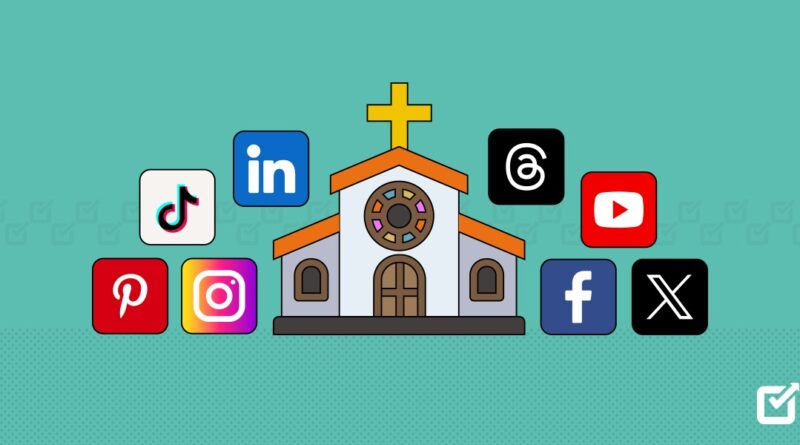Church and Media: Why The Church needs The Media?
In today’s rapidly evolving digital landscape, the impact of media on shaping perceptions, disseminating information, and building community is increasingly important. For churches, utilising media is essential for their growth and engagement. Here are several key reasons why media has become a critical component for churches to succeed in the contemporary environment.
- Enhanced Communication
Effective communication is crucial for fostering a connected community, especially in churches. Churches can use various media channels like social media, websites, email newsletters, and local community boards to communicate their messages clearly and precisely. These tools help announce upcoming events, enhance participation, and foster a sense of belonging among congregants. Sharing sermon themes and key messages allows members to prepare for worship and reflect on teachings. Regular updates on community service initiatives keep the congregation informed about opportunities to give back and engage in outreach efforts. By leveraging media effectively, churches can cultivate transparency and inclusivity, ensuring all congregants are actively engaged in their community, strengthening community bonds, and encouraging a more vibrant faith environment.
- Expanding Reach
One of the coolest things about media is how it can connect people across different places. With all the online streaming and social media these days, churches can reach folks who can’t make it to services in person. This lets them spread their message to a wider audience, which can help attract new members and build a more diverse group.
- Engaging the Younger Generation
In the digital age, Millennials and Gen Z are digital natives, valuing content over traditional media. To connect with these generations, churches should adopt innovative media strategies that resonate with their values. Utilizing platforms like Instagram, TikTok, and YouTube can spark conversations, inspire creativity, and foster community. By crafting relatable content, churches can become a dynamic presence in younger generations’ online lives. By embracing the digital age, churches can create a space for meaningful discussions and connect with young people, capturing their hearts and minds through their favourite screens.
- Fostering Community
Media not only facilitates communication but also fosters a sense of community. Online platforms allow congregations to connect, share experiences, and support one another outside of traditional services. Churches can create online groups or forums where members can discuss faith-related topics, share prayer requests, and provide encouragement. This sense of belonging can be particularly vital for individuals who may feel isolated or disconnected.
- Creative Outreach
Media provides churches with the opportunity to engage in creative outreach initiatives. From producing high-quality video content to creating podcasts, churches can share their messages in innovative ways that capture attention and inspire action. Creative media can also be a powerful tool for evangelism, allowing churches to present the gospel in relatable formats that resonate with diverse audiences.
- Educational Resources
Churches often serve as centres for education and spiritual growth. Media can enhance this educational aspect by providing access to a wealth of resources, including sermons, Bible studies, and theological discussions. Online platforms allow churches to share recorded sermons, host webinars, and provide downloadable study materials, making it easier for congregants to deepen their understanding of faith.
- Building Branding and Identity
In a competitive landscape, churches must cultivate a strong identity and brand. Effective media strategies can help churches articulate their mission, vision, and values clearly. A well-designed website, an active social media presence, and engaging content can strengthen a church’s brand, making it more recognisable and appealing to both current and prospective members.
See Also: Ceasefire Brings Hope to Gaza Amid Devastation and Loss
Conclusion
The integration of various forms of media into church life has evolved into a fundamental necessity rather than merely a luxury. By thoughtfully embracing different media channels, churches can significantly enhance their communication strategies, allowing them to convey messages more effectively to their congregations and the surrounding community.
Utilising social media platforms, podcasts, and video content can help churches expand their reach beyond traditional geographic boundaries, making their messages accessible to a global audience. This is particularly important for engaging younger generations, who often rely on digital communication as their primary means of interaction.
Moreover, the strategic use of media can foster a sense of community among members, even those who may not be physically present at services. Online platforms enable congregants to connect, share experiences, and support each other, nurturing relationships that are essential to spiritual growth and collective worship.
Additionally, media can serve as a valuable educational resource, offering sermon archives, online Bible studies, and virtual workshops that cater to various learning styles and schedules. In today’s world, where digital interactions dominate, churches that harness media effectively are not merely adapting; they are positioning themselves to thrive. This proactive approach ensures that their uplifting messages of hope, love, and faith can reach and impact those who need them the most, reinforcing the church’s role as a beacon of support and guidance in the community.
Content Credit| Kemi Arowolo
Picture Credit | https://www.socialchamp.io/




